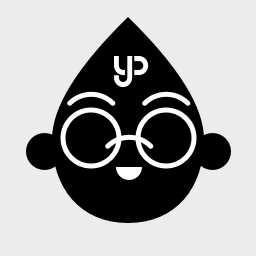
Coronavirus: 5 lessons we learned about running a mask charity
- Colour Away Covid was launched by junior reporter Bakhita Fung and her friends to ensure young people had access to high-quality face masks
- The group learned many important things from the project, such as the need to be adaptable and the importance of research

 CAC volunteers at Renaissance College Hong Kong (mask storage partner) pack the mask boxes, stick labels on them and write cards. Photo: David Fung
CAC volunteers at Renaissance College Hong Kong (mask storage partner) pack the mask boxes, stick labels on them and write cards. Photo: David FungAs the coronavirus continues to disrupt everyday life, people who are eager to mobilise the community during this health crisis are facing a huge challenge.
I launched the Colour Away Covid (CAC) initiative, which helped deliver 65,000 student-designed masks to underprivileged children, in May last year.
The mask design competition ensured young people had access to quality masks during the pandemic while encouraging them to use their creativity during difficult times. I would like to share the lessons I learned from the project.
5 teens driving the important conversations
Don’t be afraid to fail. Then adapt.
When I first wrote a piece for Young Post last May, the aim was to find a corporate sponsor who would buy 100,000 masks from a manufacturing partner and donate at least 10,000 to charity. However, after the team contacted hundreds of sponsors without much luck, we decided that we would have to change our strategy.
We looked for other manufacturers with a lower minimum order quantity, and instead of focusing on corporate sponsors, we relied on our personal efforts to raise a significant portion of the money (HK$120,000) that was needed to get the scheme off the ground.
Our team worked hard to organise virtual fundraising events such as webinars and concerts on Zoom. Eventually, we were able to produce 65,000 good-quality disposable masks.
The process taught me to be flexible and adaptable. Sometimes plan B works better than plan A.
Don’t be afraid to ask
Many people had told us that fundraising would be difficult because of the poor economy. However, this didn’t stop CAC committee members from trying: we kept reaching out to friends, family, and colleagues.
One example of this was when Taylor Chung reached out to a guest speaker from a school event. He asked Stacy Ho, a member of the Rotary Club of Hong Kong Island East, if she was interested in mentoring CAC. Eventually, the Rotary Club was so impressed with our project, they donated HK$40,000.
What’s more, one of Ho’s friends heard about our campaign and decided to sponsor our local mask deliveries through Allied Pickfords Hong Kong. Sometimes, all it takes is one question.
Students create innovative ideas for online learning during Covid-19
Passion leads to success
The CAC had formed a 15-member committee by June. However, we were never able to meet as a team in-person; most of our communication happened via text or email. I was worried about motivation. Nevertheless, the committee was passionate about the cause – our marketing head, Tatjana Foong, posted on Instagram from her dorm in London, while others called up schools during their lunch break.
Celebrate the small things
It was easy to get caught up in the struggle. We were not sure if we could raise enough funds or if our invitations were reaching any schools. This taught us to celebrate the small things – for example, when we received a message from Bydeau and SeeChange Education agreeing to sponsor us, or won prizes from Urban Spring x DBS and Soaper Delights.
Perhaps the most rewarding part was an interview with Charisma Chow, a six-year-old who drew a mask design for our competition. Although she wasn’t eligible to participate, her passion was so inspiring.
Covid-19 brings new challenges for charities helping migrant workers
Research pays off
We were told by many people that the need for masks was winding down and that our project was several months late. To an extent, they were right. Mask production had increased significantly and the government handed out free masks. However, after doing more research, we found out that children’s masks were still in short supply.
On the whole, this was a positive learning experience as it helped us to be in touch with reality; we had to align our idea of “service” with what people truly needed. For every closed door, a new one opened – as long as we were willing to learn.
Check out Instagram and Facebook for more information about CAC.
